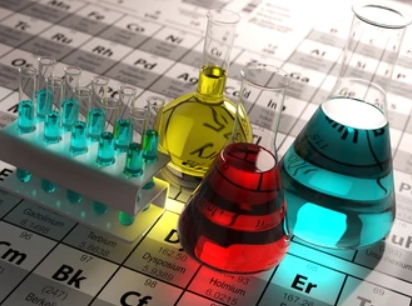In the realm of scientific disciplines, chemical engineering and pharmacology stand as two prominent fields that contribute significantly to the advancement of society. While both disciplines involve the study of chemicals and their applications, they diverge in their focus and objectives. This article aims to elucidate the key differences between chemical engineering and pharmacology, shedding light on their unique characteristics and career prospects.
- Scope and Focus:
Chemical Engineering:
Chemical engineering encompasses the application of principles from chemistry, physics, and engineering to design, develop, and optimize processes that involve the transformation of raw materials into valuable products. Chemical engineers work on a wide range of industrial processes, including manufacturing chemicals, fuels, pharmaceuticals, and consumer goods. They focus on optimizing production efficiency, ensuring safety, and minimizing environmental impact.
Pharmacology:
Pharmacology, on the other hand, is a branch of biomedical science that investigates the effects of drugs on living organisms. It involves the study of how drugs interact with biological systems, their mechanisms of action, and their therapeutic applications. Pharmacologists explore the development, testing, and usage of drugs to treat diseases and improve human health. They work closely with medical professionals and researchers to ensure the safety and efficacy of pharmaceutical interventions.
- Educational Background:
Chemical Engineering:
To pursue a career in chemical engineering, individuals typically need to obtain a bachelor's degree in chemical engineering or a related field. The curriculum includes courses in chemistry, physics, mathematics, thermodynamics, fluid mechanics, and process design. Advanced degrees, such as a master's or Ph.D., can provide further specialization and research opportunities.
Pharmacology:
Becoming a pharmacologist usually requires a strong foundation in biological sciences. Individuals often pursue a bachelor's degree in pharmacology, pharmaceutical sciences, or a related field. The coursework covers topics such as biochemistry, physiology, pharmacokinetics, and drug development. Advanced degrees, such as a Ph.D. or Doctor of Pharmacy (Pharm.D.), are common for those seeking research or clinical positions in pharmacology.
- Career Paths:
Chemical Engineering:
Chemical engineers have diverse career options across various industries. They can work in sectors such as chemical manufacturing, petroleum and energy, pharmaceuticals, food and beverage, environmental engineering, and materials science. Their roles may involve process design, plant operations, research and development, quality control, and environmental management. Chemical engineers contribute to the development of sustainable and efficient processes, ensuring the safe production of essential products.
Pharmacology:
Pharmacologists can pursue careers in academia, pharmaceutical companies, research institutions, regulatory agencies, and healthcare settings. They may work in drug discovery and development, clinical research, toxicology, pharmacovigilance, or medical affairs. Pharmacologists play a crucial role in evaluating drug safety and efficacy, conducting clinical trials, and providing evidence-based recommendations for drug usage. Their work directly impacts patient care and the advancement of medical treatments.
- Overlapping Areas:
While chemical engineering and pharmacology have distinct focuses, there are areas where these disciplines intersect:
- Pharmaceutical Process Engineering: Chemical engineers contribute to the design and optimization of pharmaceutical manufacturing processes, ensuring efficient drug production and quality control.
- Drug Delivery Systems: Both chemical engineers and pharmacologists collaborate to develop innovative drug delivery systems, such as nanoparticles, implants, and transdermal patches, to enhance drug efficacy and patient compliance.
Conclusion:
In summary, chemical engineering and pharmacology are two distinct yet interconnected fields that contribute to scientific progress and societal well-being. Chemical engineering focuses on the design and optimization of industrial processes, while pharmacology delves into the study of drugs and their effects on living organisms. By understanding the differences and synergies between these disciplines, individuals can make informed decisions about their educational and career paths, ultimately contributing to advancements in science and healthcare.







+ There are no comments
Add yours